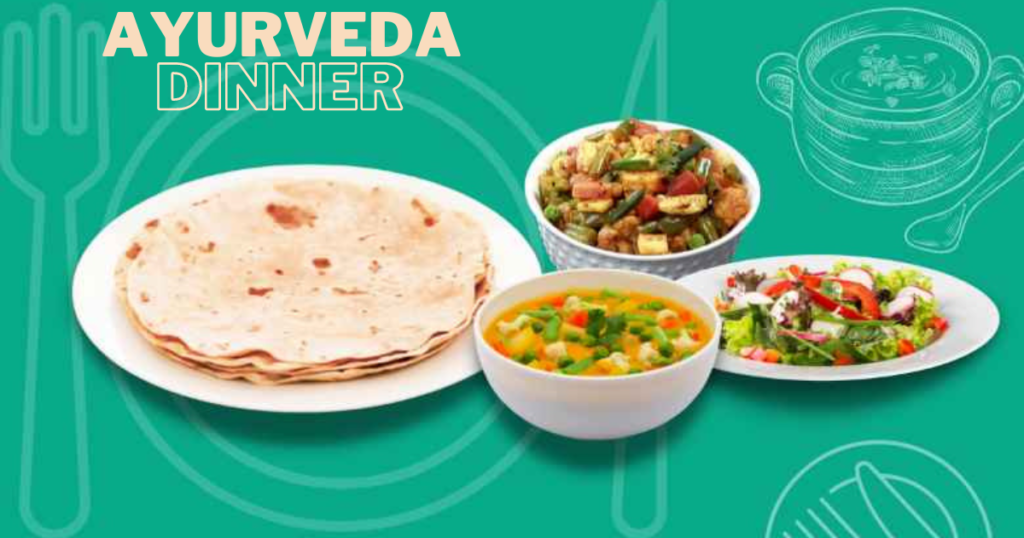Ayurveda is an ancient Indian science that focuses on natural healing techniques. wellhealthorganic.com:ayurveda-dinner philosophy states that the body is made up of three doshas, or energy, which must be balanced for good health. These doshas are Vata, Pitta, and Kapha.
wellhealthorganic.com:ayurveda-dinner: The balance of doshas
An Ayurveda dinner is a meal that aims to balance these doshas.
Ayurveda is not just about food, but it also considers factors such as lifestyle, emotions, and environment. However, food plays a significant role in Ayurveda.
An Ayurveda dinner is a meal that includes fresh, organic, and seasonal foods that are easy to digest, and that are suitable for your dosha type.
It is a meal that nourishes the body and mind, and it helps to promote good health.
wellhealthorganic.com:ayurveda-dinner: The six tastes

wellhealthorganic.com:ayurveda-dinner focuses on six tastes- sweet, sour, salty, bitter, pungent, and astringent. The aim is to include all the six tastes in the meal to promote a balanced diet.
The six tastes have specific properties that affect the doshas.
- Sweet taste balances Vata and Pitta doshas
- Sour taste balances Vata and Kapha doshas
- Salty taste balances Vata dosha
- Bitter taste balances Pitta and Kapha doshas,
- Pungent taste balances Kapha dosha
- Astringent taste balances Pitta and Kapha doshas.
An Ayurveda dinner typically starts with a warm drink, such as ginger tea or warm water. Warm drinks help to stimulate digestion and promote good health.
The course

The main course includes a variety of dishes that are made with fresh, seasonal vegetables, grains, and legumes. Ayurveda encourages eating a variety of foods to ensure that the body receives all the necessary nutrients.
A typical wellhealthorganic.com:ayurveda-dinner may include dishes such as khichdi, which is a rice and lentil dish, steamed vegetables, daal, a lentil soup, and chutney.
The food is cooked with herbs and spices that are known for their healing properties, such as turmeric, cumin, coriander, and ginger.
Ayurveda recommends eating foods that are easy to digest and that are suitable for your dosha type.

For example, people with Vata dosha are advised to eat warm, moist, and cooked foods, while people with Pitta dosha are advised to eat cool, refreshing foods.
wellhealthorganic.com:ayurveda-dinner emphasizes the importance of eating mindfully. It recommends eating in a calm and relaxed environment, without any distractions such as TV or mobile phones.
Helps in digestion
Mindful eating means savoring each bite and chewing the food slowly, which helps with digestion. Ayurveda also recommends avoiding overeating and eating only when you are hungry.
wellhealthorganic.com:ayurveda-dinner also includes the concept of food combining. This means combining foods that complement each other and avoiding foods that do not mix well.
For example, combining protein-rich foods with grains, vegetables, or fruits is a good idea as it helps with digestion. However, combining protein-rich foods with dairy or starchy foods can lead to digestive problems.
Ayurveda dinner also recommends eating at the right time.

wellhealthorganic.com:ayurveda-dinner suggests having dinner at least two hours before bedtime to allow for proper digestion. It is essential to have dinner at the same time every day to promote good health.
Ayurveda dinner also focuses on the importance of eating seasonally. Ayurveda recommends eating foods that are in season as they are fresher and more nutritious.
Eating seasonally also helps to balance the doshas as different foods have different properties and effects on the doshas.
Ayurveda is an ancient Indian system of medicine that emphasizes the use of natural remedies and a holistic approach to health and wellness.
In addition to the use of herbs, spices, and other natural ingredients for medicinal purposes, Ayurveda also recommends a healthy diet as a key component of maintaining good health.
One way to incorporate Ayurvedic principles into your diet is by preparing an Ayurveda-inspired dinner. Here are some tips and suggestions for creating a nourishing and balanced Ayurvedic meal:
- Focus on fresh, whole foods: Ayurveda emphasizes the use of fresh, unprocessed foods as the foundation of a healthy diet. Choose whole grains, fresh vegetables and fruits, and high-quality protein sources such as lentils, beans, and nuts.
- Use warming spices: Ayurveda recommends the use of warming spices such as ginger, cumin, coriander, and turmeric to aid digestion and promote a healthy metabolism. These spices can be added to soups, stews, and curries to add flavour and nutrition.
- Include all six tastes: According to Ayurveda, a balanced meal should include all six tastes: sweet, sour, salty, bitter, pungent, and astringent. This can be achieved by including a variety of ingredients in your meal, such as sweet potatoes, lemon juice, sea salt, kale, chili powder, and green beans.
- Avoid overeating: Ayurveda recommends eating until you are about 75% full to aid digestion and prevent discomfort. Take your time while eating and pay attention to your body’s signals to avoid overeating.
- End your meal with a calming beverage: Ayurveda recommends ending your meal with a warm, calming beverage such as ginger tea or warm milk with honey to aid digestion and promote relaxation.
By incorporating these principles into your dinner routine, you can create a healthy and balanced meal that nourishes your body and supports your overall well-being.
In conclusion, Ayurveda dinner is a meal that promotes good health and well-being. It is a meal that balances the doshas and includes a variety of freshly prepared food. The main focus of this meal is to treat your body with proper, healthy food which will enable it to digest it properly. To do this, wellhealthorganic.com:ayurveda-dinner recommends eating it at a particular time in particular amounts. Even to eat a particular type of it.
